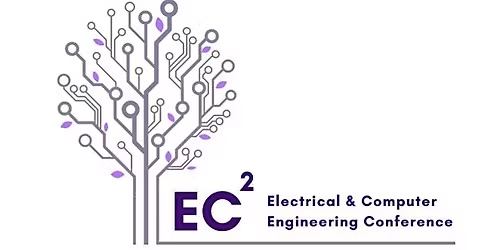
About this Event
AI and Feminism: Foundations of a Critical Dialogue on Gender, Power, and Technology
Join us for a thought-provoking event delving into the intersection of artificial intelligence and feminism. Explore how gender, power dynamics, and technology interact in today's world. This in-person event will be held at Seymour Schulich Building, ADERSIM Lab, N004. Don't miss out on this opportunity to engage in a critical dialogue on these crucial topics!
This interdisciplinary course bridges foundational concepts in artificial intelligence (AI) with feminist theories, offering a critical framework to examine how AI technologies reinforce or challenge societal power dynamics. Participants will explore key feminist principles, including intersectionality, alongside AI fundamentals such as machine learning and algorithmic design. Through lectures, case studies, and reflective activities, the course emphasizes critical theory and ethical considerations, equipping attendees with tools to interrogate and reimagine AI systems in ways that promote equity and inclusion.
A microcredit certificate will be issued to all participants from CIFAL York.
Course Outline
Learning Objectives
- Define key terms and historical developments in both feminist theory (e.g., waves of feminism, intersectionality) and AI (e.g., machine learning, deep learning).
- Explore how feminist critiques and critical theories can be applied to ethical challenges in AI.
- Investigate how biases related to race, gender, and other identities are embedded in data and algorithms.
- Engage with case studies to identify how algorithms, such as facial recognition systems, perpetuate or challenge social hierarchies.
- Reflect on the ethical development of AI through a feminist lens.
- Identify actionable steps for applying feminist principles to AI research and development.
Key Course Features
- Comprehensive Curriculum: Covering everything from the fundamentals of feminism and AI to intersectionality, ethics, and bias.
- Expert Instruction: Led by experts in the fields of feminism and AI, this course will deliver lectures on feminism, AI, and intersectionality.
- Collaborative Environment: Discuss lecture topics and case studies alongside like-minded peers in a supportive and dynamic learning environment, fostering creativity and innovation.
- Reflective Session: Create a personal reflection based on course content and share ideas with your peers.
Who Should Attend?
This course is designed for Feminist students, Eng. And Comp. Sciences student and researchers, Students interested in AI and Feminism, data scientists, enterprise and NGO employees interested in the topic.
Please note that you do not need to have a background in feminism or AI to successfully complete this course.
Course Instructors
Dr. Christo El Morr
Christo El Morr, PhD, is a Professor of Health Informatics and the Director of the Centre for Feminist Research (CFR) at York University. He is also a Research Scientist at North York General Hospital, Toronto. Additionally, he serves as the Health Informatics Certificate Coordinator and is a former Graduate Program Director and Undergraduate Program Director at the School of Health Policy and Management at York University.
His research aligns with an Equity Informatics perspective, covering areas such as Equity AI (e.g., patient readmission, disability advocacy), Patient-Centered Virtual Care (e.g., chronic disease management, mental health), Global Health Promotion for equity (e.g., equitable health promotion), and Human Rights Monitoring (e.g., disability rights, Gender-Based Violence).As a theologian and poet, his broader intellectual contribution to social justice focuses on defending the human person against alienation, whether through infringements on human freedom or dignity in the face of irrational powers and exploitation. His work encompasses the fight for freedom from oppression (e.g., analysis of exclusive identities, communion and solidarity, freedom, liberation of reason), freedom from exploitation (e.g., analysis of illusions of freedom, political and religious exploitation), and the freedom to celebrate life (e.g., poetry).
Dr. Maleknaz Nayebi
Maleknaz is an Assistant Professor at York University in Toronto. Before that she was a professor at Ecole Polytechnique of Montreal. She received her PhD degree from Software Engineering Decision Support (SEDS) lab at The University of Calgary in Canada. Maleknaz has been working on software open innovation with a focus on the platform mediated software products. She is one of the main collaborators on DEEL Collaborative Research and Development Grants with a total value of 2M dollars. She was also a professor of IVADO data science institute with the role of fostering cross-disciplinary collaboration with industry.
She has six years of professional software engineering experience. Her main research interests are in mining software repositories for open innovation in two-sided markets. Maleknaz co-chaired SANER 2020 ERA track, ESEM 2020 Emerging ideas track, RE data track 2018, IASESE 2018 advanced school, and several workshops. Maleknaz is a member of the IEEE and ACM. Maleknaz leads a team of students and associates on analytical methods for decision support in software innovation in society.
Dr. Bianca Beauchemin
Bianca Beauchemin is an Assistant Professor in the School of Gender, Sexuality and Women’s Studies at York University. She recently was the 2022-2023 recipient of the postdoctoral fellowship in Black Feminist Thought at Queen’s University. She was also awarded the Social Sciences and Humanities Research Council (SSHRC) doctoral fellowship while completing her PhD at the University of California, Los Angeles (UCLA) in Gender Studies. She has published a book review of Brittney C. Cooper’s Beyond Respectability: The Intellectual Thought of Race Women in Antipode: A Radical Journal of Geography. She has also recently published the article "Opaque Aesthetics of Freedom: Romaine la Prophètesse, the Haitian Revolution, and Black Diasporic Possibilities” for the Journal of Canadian Studies. She is also working on her book manuscript Arousing Freedoms: Re-Imagining the Haitian Revolution through Sensuous Marronage, where she re-narrates the Haitian Revolution through Black feminist and Black queer epistemologies and methodologies. Disrupting the authority of the colonial archive and of prevalent masculinist framings of insurgency discourses, she explores the ways in which embodiment, labour, sensuousness, spirituality, marronage, resistance and alternative sexualities and genders, re-imagine the edicts of freedom and Black liberation.
Dr. Habiba Rahman
Habiba Rahman is a PhD candidate in Critical Disability Studies at York University. Before immigrating to Canada, she worked as a lecturer in English literature in Bangladesh. In Canada, she has also worked as a Disability Support Worker (DSW). These diverse experiences inform her research and ongoing commitment to social justice. Her current work critically examines how structural inequalities—particularly around race, disability, and labor—are reproduced and intensified by artificial intelligence systems. Drawing from both academic frameworks and lived experience, Habiba explores how AI reinforces existing power structures, especially in the lives of racialized and disabled workers.
Sabine Fernandes
Sabine Fernandes is a PhD student in Critical Disability Studies at York University’s School of Health Policy & Management. With a transnational background in care work, their research interests include cross-movement solidarity in disability care organizing, popular care work political education, the political economy of human rights, and critical access studies. They work in the intersections of disability and migrant justice.
Agenda
🕑: 10:00 AM - 12:00 PM
Introduction to Feminism and AI
Info: Lecture: Overview of Feminism (60 min)
Topics: Waves of feminism, key theorists, and intersectionality.
Lecture: AI Basics (60 min)
Topics: Definition, history, and types of AI, including machine learning and deep learning.
🕑: 12:00 PM - 01:30 PM
Structural Inequalities and AI
Info: Lecture and Discussion: Oppression is not only derogatory remarks, discriminatory behaviour, or overt violence. In this session, we will discuss concepts like social construction and value-laden knowledge to understand the structural basis of social inequalities. We will consider the example of search engines to illustrate how discrimination gets “baked into” our technologies. (30 min)
Topics: Social construction, value-laden knowledge, structural inequality, and algorithms.
Activity: Group Discussion (30 min)
Topic: How does AI replicate or challenge gender and racial hierarchies?
Activity: Group Presentations (30 min)
🕑: 01:30 PM - 02:30 PM
LUNCH BREAK
🕑: 02:30 PM - 04:00 PM
Intersectionality in AI Systems
Info: Lecture: Intersectionality (45 min)
Topics: Kimberlé Crenshaw’s theory, how intersectionality influences data and algorithms in AI.
Case Study Discussion (45 min)
Activity: Analyzing case studies of biased algorithms (e.g., facial recognition failures based on race and gender).
🕑: 04:00 PM - 04:30 PM
Reflective Session: Feminist AI Ethics
Info: Activity: Individual Reflection (15 min)
Write a reflection on AI development through a feminist lens.
Discussion: Share reflections with peers (15 min).
🕑: 04:30 PM - 05:00 PM
Wrap-Up and Takeaways
Info: Summary of key concepts and next steps for deeper exploration.
Event Venue & Nearby Stays
111 Ian MacDonald Blvd, 111 Ian Macdonald Boulevard, Toronto, Canada
CAD 56.50 to CAD 282.50











